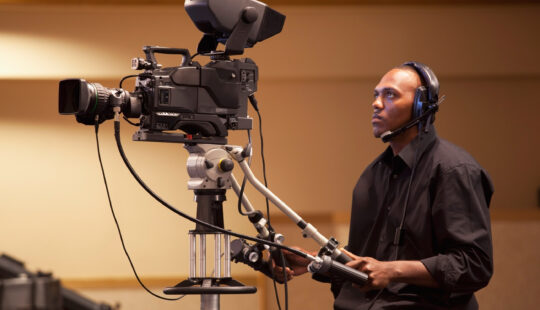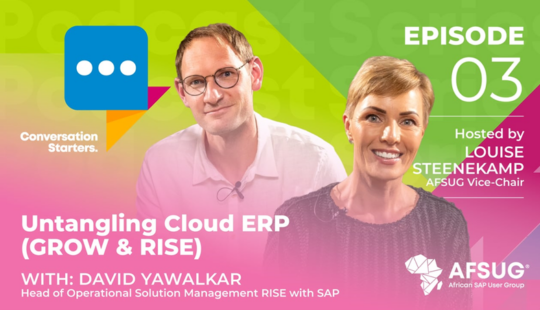Digital transformation is a critical requirement for companies and industries around the world. But the realities of doing so can be challenging.
Sven Denecken, senior vice-president, chief marketing and solutions officer for industries and CX at SAP, points out that there are some trends that are common across all industries – and this gives us the opportunity to learn together.
“I believe that at SAP, together with our partner ecosystem and customers, knows industries. This gives us to ability to develop solutions that help make customers future-proof.”
Because it is an international company, experiences can be shared across the world, often allowing developing markets to leapfrog their developed counterparts, he adds.
An example of how SAP can help customers run efficient operations is the concept of the industry cloud. “I believe that if we standardise a good portion of our businesses using industry cloud we can innovate on the vertical axis.”
A trend driving business today is the move to industry convergence. “Companies are realising that they are in more than one industry. And this is accelerating.”
This convergence has significant implications for value chains cross the board, Denecken says.
From agribusiness to manufacture, from supplier to retail, there are major new opportunities driven by convergence.
Denecken cites an example of e-mobility venturing into retail – which uses the same technology to add services to attract and retain customers by offering services like electric vehicle charging and rewards.
The convergence of industries, like energy and retail , should spark companies to become more creative with their technology to improve the customer’s experience, he says.
“Think about e-mobility and its convergence with ride-sharing, energy companies, and the financial services attached to these industries.”
Best practices are key to shaping industries, Denecken says. “We need to think about best practice – but also next practice, powering innovation. We need to think about how we can shape each industry together.”
When SAP talks about the intelligent enterprise, it is about putting a lot of data into the context of a business process and consuming it as applications, Denecken points out.
“But business processes change all the time, so the challenge is to transform into a resilient intelligent enterprise.”
Reslience comes from managing risks, he adds. Any change needs to be sustainable.
Where technology is going is artificial intelligence. Denecken says. And so SAP is integrating AI into its solutions.
SAP solutions include SAP e-mobility, SAP intelligent agriculture, SAP intelligent product recommendation, SAP predictive replenishment, and SAP intelligent trade, claims management.
Importantly, what is vital in the deployment of AI and generative AI is:
* It should be built into the processes, not bolted on.
* It needs to be relevant to the customers, within the context of the experience gathered over the years.
* It needs to be responsible and trustworthy.
“I believe generative AI will democratise AI,” Denecken says. “People will start in the business with a completely different level of knowledge.
“Our job is to guide them into the right context. We need to open that dialogue. What is the responsible customer application and what is possible?”
GROW with SAP offers partners and customers the ability to enhance their solutions through a software as a service (SaaS) portfolio, together with adoption and acceleration services, and with community and learning.
A degree of technology standardisation allows companies to quickly expand their operations. Denecken cites the example of a company running SAP S/4 HANA Cloud, private edition in its European head office. It was able to quickly roll out across Africa using SAP S/4 HANA cloud public edition.
SAP has set up the SAP Business Network for Industries to help customers learn from best practices across the supply chain.
Don’t look at business processes in isolation, but consider sharing that data across the supply chain to add value to all the players, he says.
Sustainabiiity is a big issue worldwide today. The world is facing climate change implications, extreme weather, sea level rise, resource scarcity, an increase in inequality, and a loss of biodiversity.
“This also needs to be brought into a business sense,” Denecken says. .
Companies need to be serious about mitigation and adaptation – and potential business partners will soon ask for proof of those.
SAP is serious about demonstrating truth, and to discover the future in partnership with customers, Denecken says.
To this end, SAP has set up experience centres across the world to show how processes are changing and how solutions can be deployed. It has recently opened one in its Woodmead offices.
“There is no time to lose for companies to identify their challenges and how to get to where they need to be,” Denecken concludes.
This article first appeared on IT Online.



